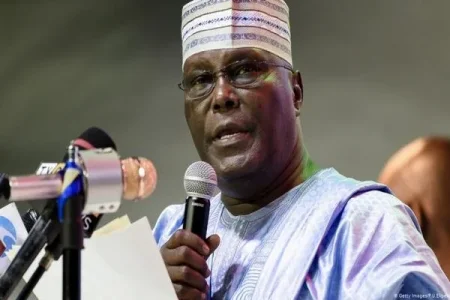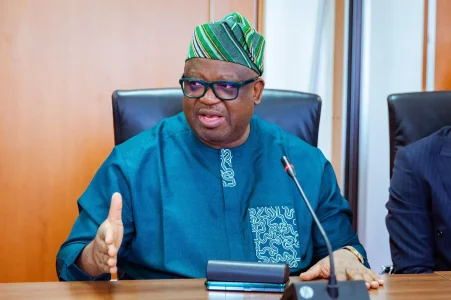
Atiku Abubakar criticizes Nigeria's 2025 budget, labeling it inadequate to tackle economic challenges. He highlights concerns over excessive borrowing, disproportionate debt servicing, and insufficient capital investment. Atiku calls for structural reforms, fiscal discipline, and efficient public spending to achieve sustainable growth and address Nigeria’s infrastructure deficit.
Atiku Abubakar, former Nigerian vice president, has criticized the proposed 2025 federal budget, calling it insufficient to address the country's economic challenges. In a statement, Abubakar argued that the budget, amounting to N48 trillion with a revenue forecast of N35 trillion, reveals a continuation of "business-as-usual" fiscal practices. He expressed concern over the planned N13 trillion deficit and the increased reliance on external borrowing, which he believes will deepen Nigeria's debt burden.
Atiku Abubakar highlighted several issues with the budget, including weak budgetary execution, disproportionate debt servicing, and unsustainable government expenditure. He pointed out that debt servicing, which accounts for 33% of the total expenditure, nearly equals the planned capital expenditure. He also criticized the high recurrent expenditure, with over N14 trillion allocated to operating the bureaucracy and inefficient public enterprises. Additionally, the proposed VAT increase, from 7.5% to 10%, was described as a "retrogressive" measure that will worsen the cost-of-living crisis.
He emphasized the need for structural reforms and fiscal discipline, urging the government to focus on reducing inefficiencies and prioritizing long-term fiscal sustainability. He argued that without these changes, the 2025 budget will fail to stimulate economic growth and address Nigeria’s critical infrastructure needs. In conclusion, Abubakar called for a shift towards a more disciplined and growth-oriented fiscal policy to ensure the nation’s economic recovery.



![[FULL TEXT] Tinubu's 2026 Message: Reforms, Security and Prosperity for Every Household](/data/attachments/226/226874-4f168a69f5da2f2beba0abad16eafe9d.jpg?hash=McIpTkIc6q)
